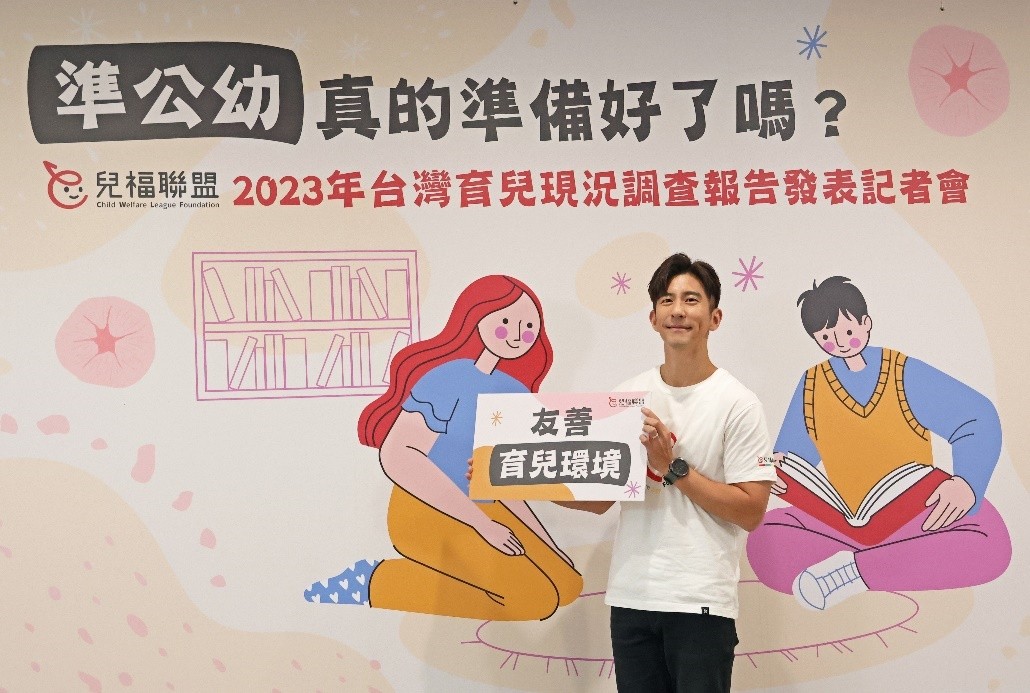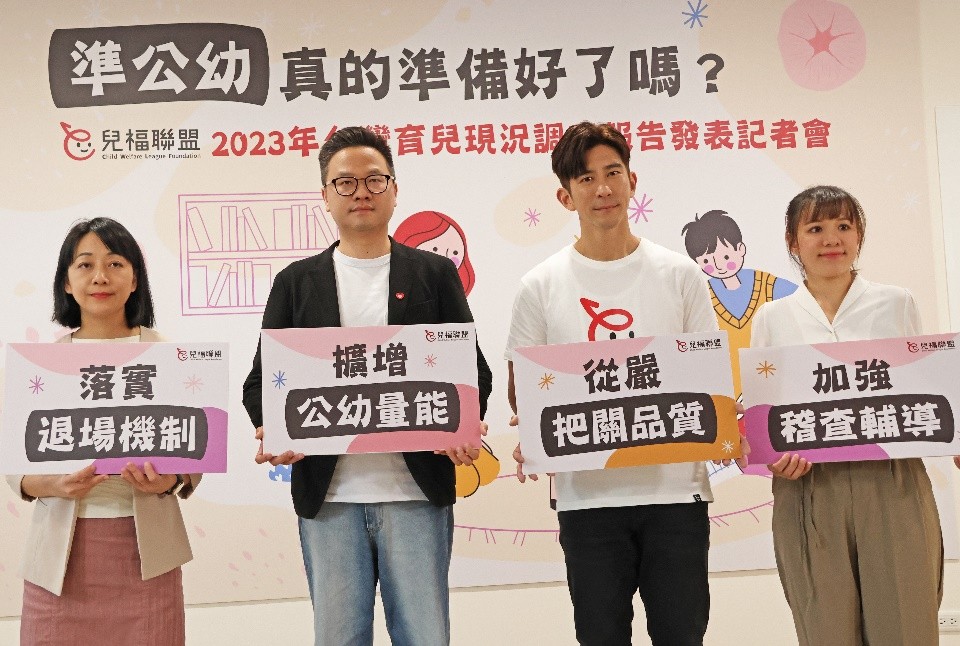
2023 Survey on Parenting Situation in Taiwan: Concerns about Quasi-public Kindergartens
Child Welfare League Foundation (CWLF) released “2023 Survey on Parenting Situation in Taiwan.”
Public kindergartens obtained the highest average satisfaction score (8.6) from parents, while quasi-public kindergartens obtained the lowest score (8.09).
The Ministry of Education has invested significant resources in promoting a quasi-public kindergarten model by purchasing services from private kindergartens. This is aimed at providing affordable childcare services. However, with the government putting in so much effort to expand these services, is it truly reassuring for parents to send their children to quasi-public kindergartens? Do parents consider these services parenting-friendly?
A truly parenting-friendly childcare policy should meet the needs of parents.
CWLF released “2023 Survey on Parenting Situation in Taiwan”, showing that public kindergartens obtained the highest average satisfaction score (8.6) from parents, while quasi-public kindergartens obtained the lowest score (8.09). The reason for parents’ dissatisfaction lay in the disparity between the expectation and the actual experience of sending their children to childcare. Parents reported examples of dissatisfying childcare, such as insufficient or low-quality meals (21.2%), violations of regulations (16.7%), and high teacher turnovers (13.6%).
As the survey revealed, 95% of parents believed that "Quasi-public kindergartens receiving government subsidies should be supervised for their quality," and 68.5% of parents believed that " Quasi-public kindergartens, with the government’s accreditation, would be reliable places for toddlers to go." Thus, quasi-public kindergartens are not just a supplementary measure for the government’s expansion of affordable childcare services. They are also built upon the trust parents have in the government's management and evaluation system.
The government, however, did not thoroughly assess the kindergartens’ past quality of childcare before signing agreements with them. Additionally, there is a lack of effective monitoring system to eliminate quasi-public kindergartens that violate regulations. CWLF further reviewed the records of violations and penalties from 2018 to 2023 and found that the average rate of violations and penalties among quasi-public kindergartens was 33.7%. The top three examples of violations included hiring staff members without educare giver licences (24.3%), over-enrollment (15.6%), and charging fees under various pretexts (13.3%). It is no wonder that parents with children enrolled in these kindergartens would feel concerned and dissatisfied.
Parents still prefer public kindergartens, but have limited access to them.
The survey showed that public kindergartens obtained the highest average satisfaction score (8.6) from parents. The main reasons parents would choose public kindergartens included affordable tuition fees (71.4%), stable and high-quality teachers (53.8%), and a lower possibility of violation (48.9%). Nevertheless, parents also mentioned some reasons for not choosing public kindergartens. First, the enrollment quota is low, which make it difficult to get a spot (32.0%). Second, public kindergartens are out of services during winter and summer vacations, and childcare fees during these periods are charged additionally (59.9%). Third, public kindergartens’ dismissal time is too early for parents to pick up their children (59.0%).
As mentioned by Hong-Wen Li, the spokesperson of CWLF, childcare service is one of the key government measures to address the declining birth rate. In addition to affordable fees, parents care about the safety and quality of childcare services. Public kindergartens are still top choices for most parents, but the amount of public kindergartens has increased quite slowly in recent years. Also, parent-unfriendly issues such as early dismissal time and a lack of service during winter and summer vacations are yet to be solved. Quasi-public kindergartens, however, do not seem to be an optimal alternative. The government has invested a great amount of resources in purchasing services from quasi-public kindergartens, yet incidents of inadequate care have repeatedly emerged. While many parents choose quasi-public kindergartens due to a budget constraint, they cannot help but feel concerned about this decision.
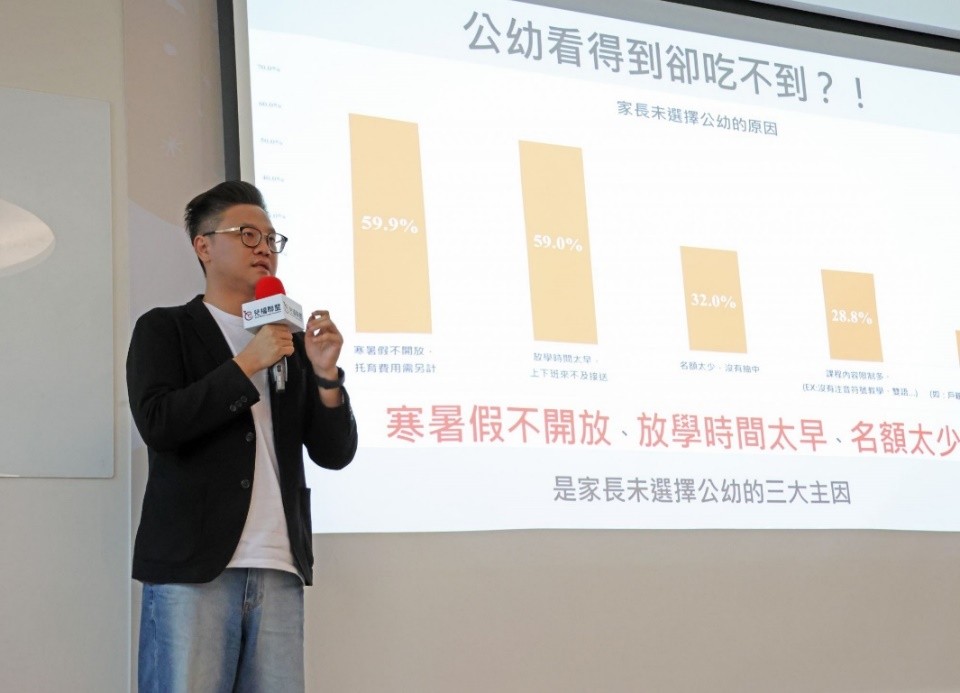
It is important to provide high-quality childcare services.
Actor and CWLF ambassador Jie-Kai Hsiu, legislator Wan-Yu Wang, and parent representative Ms. Su were invited to the press conference to share their opinions on childcare services. Jie-Kai Hsiu has a good reputation as a father and is very dedicated to children’s learning. He shared about how he and his wife made education arrangements for their children. He also made an appeal to the government and the society to provide parenting-friendly childcare services so that parents can raise children more easily.
Legislator Wan-Yu Wang also mentioned the frequent occurrences of child abuse cases in childcare facilities in recent years. This highlights that while the government has been actively working to enhance childcare capacity, there are many problems with the management system of childcare institutions, both in terms of regulations and practical implementation. Cases of inadequate care also reveal the inability to cultivate a positive caregiving profession through educare giver training programs. Furthermore, the proportion of women aged 40 and above participating in the workforce has currently decreased, indicating that women still have to face the choice between career and parenting. The government should not only provide subsidies but also foster a parenting-friendly environment so that parents can re-enter the workforce with ease. The ultimate goal is to expand the number of public kindergartens, and quasi-public kindergartens are just temporary substitutes. However, there is still a lack of system for phasing out quasi-public kindergartens at present, and the quality of childcare in quasi-public kindergartens cannot be guaranteed. Wang urged the government to establish clear penalty systems and ensure effective oversight at every step, including policy, legislation, implementation, and inspection.
Parent representative Ms. Su mentioned that she had heard of numerous cases of violations in kindergartens. When looking for a suitable kindergarten for her child, Ms. Su not only searched for information online but also asked other parents for suggestions. However, due to the inability to trace the violations and to know the consequences for the teachers involved, she still found it difficult and stressful to choose a kindergarten.
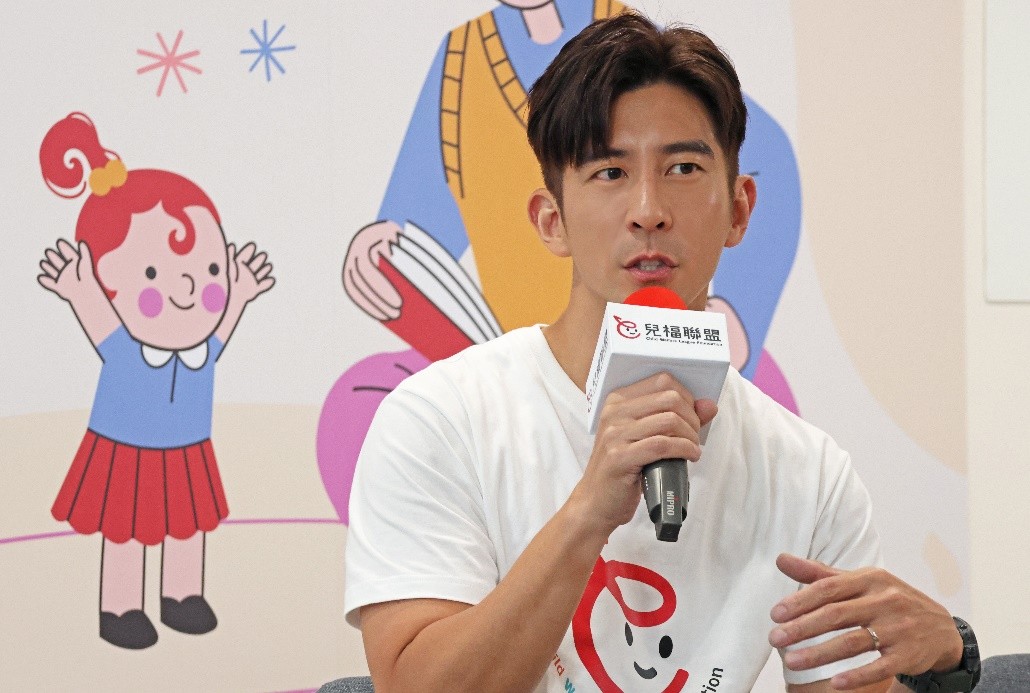
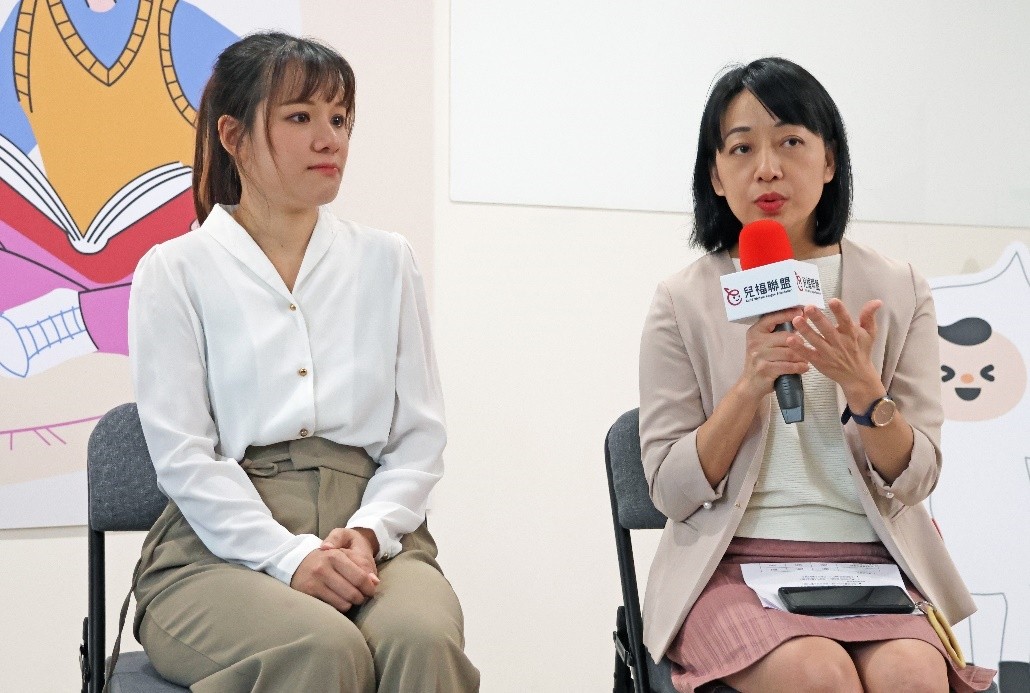
A parenting-friendly environment is not just about providing a place for children to go; it is about providing high-quality childcare services.
According to the spokesperson Hong-Wen Li, CWLF acknowledges the government’s attention to the issue of declining birth rates, which has led to more childcare options for parents in recent years. However, the provision of parenting-friendly childcare services should be suitable for early childhood development and meet parents’ needs. Therefore, CWLF is making the following appeals:
- Improve phase-out policies and practices for quasi-public kindergartens, increase the frequency of inspections, and implement quality supervision and management. At the same time, staff members in kindergartens should be assisted by external experts through regular visits to ensure the quality of childcare services.
- Expand public childcare services, increase the proportion of public kindergartens to 40 percent, and provide public childcare services that better meet nowadays parents’ needs. While the government promotes the publicization of childcare, the ratio of public to private kindergartens remains at 3:7. The government should expand public childcare services and increase the proportion of public kindergartens to 40 percent. Moreover, it is important to lift the limitations on public childcare services, such as early dismissal time and a lack of service during winter and summer vacations, so that the services can better meet parents’ needs.
